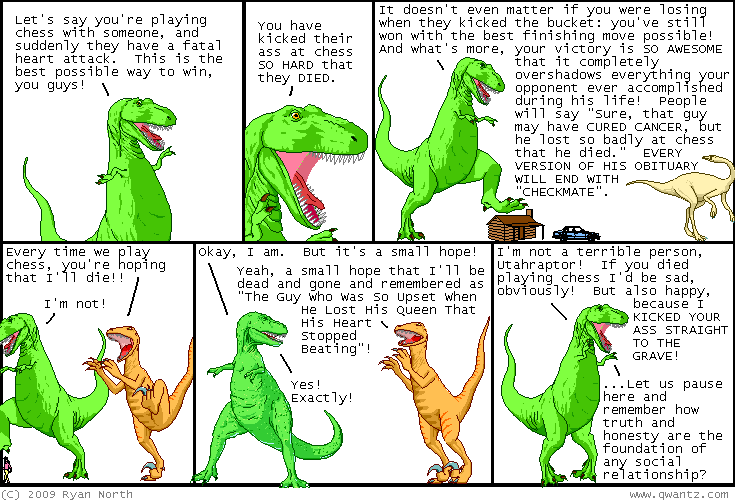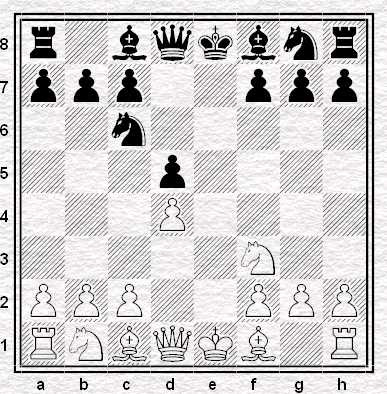P4R
The R means Rey, the king: it's e4, P-K4, quite likely the first move most of us learned by name. Hence the first we learned to write, in whatever notation was first taught to us, which in my case, some thirty-five years ago or more, was descriptive.
My copy of My Sixty Memorable Games uses descriptive, as of course did Bobby Fischer: I used it myself until about 1980, then switched to algebraic and never switched back: but like a language learned early in life, I can read it, and think in it, as easily as I can algebraic. In chess, at least, I am bilingual. I'm glad to have learned both: it gives me easy access to an older literature which may cause younger players than I to stumble.
When I came to Spain I found that some of the older players - and, naturally, all the older literature - also used descriptive. I'd not realised this - I'd been under the vague and obviously ill-informed impression that like the metric system, algebraic was a Continental style which had been happily used by everybody else in Europe for decades, perhaps right back to the nineteenth century. Not so: when I was learning descriptive, Spanish children of the same age were learning it too.
Now what's odd about it is how hard I find it to follow. Of course the names of the pieces are different and hence the letters which are used to denote them - instead of B for Bishop we have A for Alfil, instead of R for Rook we have T for Torre, whereas R itself, as seen above, means Rey. But I don't have any real problem following Spanish algebraic - I can write it myself swiftly enough, though I imagine I will always write, illegibly, my own scoresheets in the language which comes to me naturally. P4R, though, gives me problems. I have to think it through, much as I have to try and compose a Spanish sentence in my head before speaking. I have to check it with myself. I am not immediately sure.
Why should this be? I suppose on one level it is that the elements come in a different order, the number of the rank coming after the letter of the file just, as the adjective in Spanish habitually comes after the noun which it describes. That's one thin - it might even be the most important thing. But the other is simply its shape. It looks strange. And the reason it looks strange is the absence of the dash.
For nearly four decades I've been used to seeing P-K4, not PK4. The dash, mentally, plays the part of "to". Pawn to king four, p dash k 4. I expect it to be there.
I don't know why. It isn't there in algebraic - indeed, algebraic is distinguished in my mind by the absence of the dash, that's what I first noticed about it when I first saw it as a child. Or short algebraic is, at any rate: the long algebraic which I briefly used (having been so advised, I think, by Chess for Tigers) employed the dash, though there's no obvious reason why it should have to. If it's possible to write P4R it should be possible to write PK4 or e2e4. But we don't - and unfamiliarity breeds confusion.
Now when one sees cultural differences one wonders about their origin, and whether it has always been like that, and how different conventions came to be agreed and accepted in different places. I don't know, for instance, whether Spanish chessplayers have ever written P-4R, or whether the two different styles existed alongside one another (as did algebraic and descriptive, in the England of my youth) until the dashless version superseded the other.
Similarly, I don't know whether the dash has always been there in English, or whether the style PK4 was ever tried and rejected. I have, I am sure, seen some players write their scoresheets like that. But was it ever adopted as a style of preference in English-language literature?
































